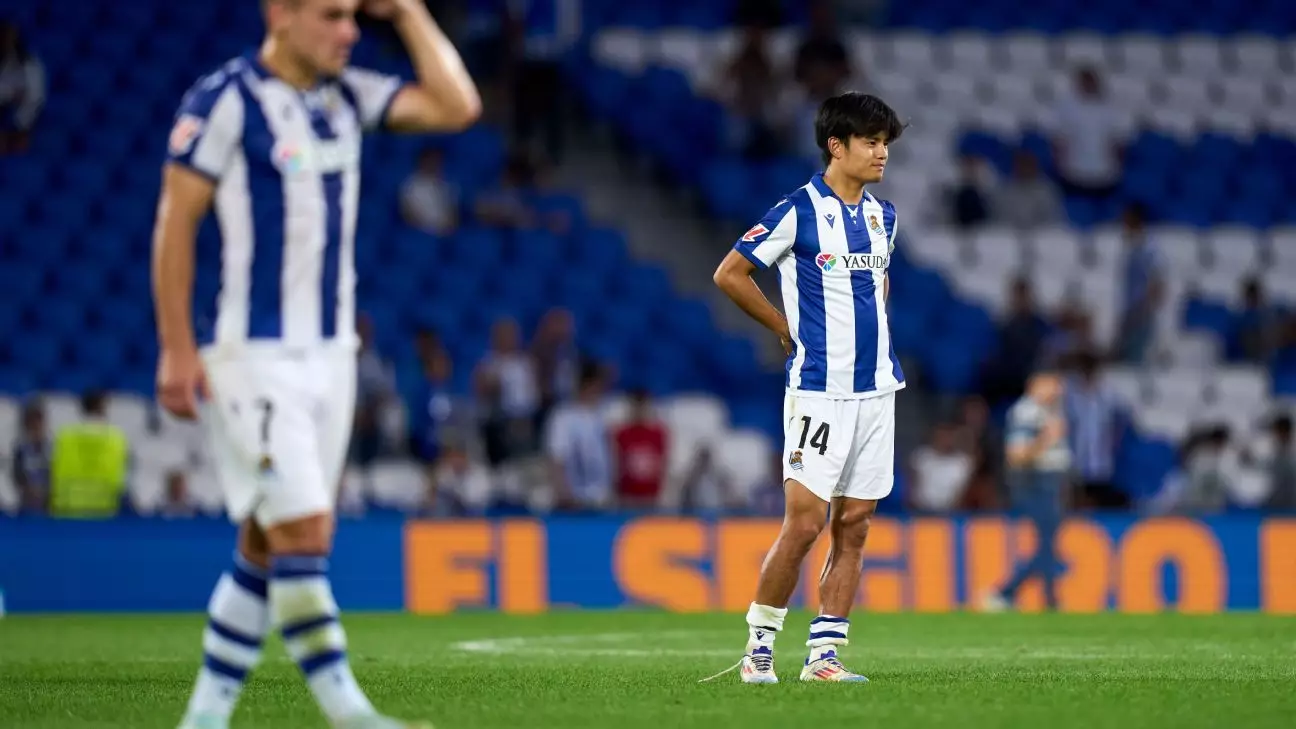In a distressing episode during a recent match, Valencia’s Mestalla stadium became the backdrop for appalling displays of racism directed at Real Sociedad players, particularly Japan’s Takefusa Kubo and local talent Ander Barrenetxea. Fans’ derogatory shouts, captured in a video shared by Real Sociedad on social media platform X, emerged while these athletes were preparing to enter the game. This incident not only highlights the persistent presence of racism in sports but also calls for urgent dialogue around how sporting institutions and clubs respond to such behavior.
Following the incident, both Valencia and Real Sociedad expressed their unequivocal condemnation of the racist insults. Valencia’s official statement conveyed a strong message that the racist actions of a few individuals do not reflect the overarching values held by the club. They reiterated their commitment to cooperate fully with authorities in identifying the offenders and promised stern disciplinary actions that could lead to their expulsion from the stadium. This proactive approach indicates a growing awareness within football clubs about their role in combating racism.
This incident at Mestalla is not an isolated event within Spanish football, as it occurred against a backdrop of increased racial tensions in the sport. In June, a landmark conviction marked the first legal triumph against racism in Spanish football, where a court addressed racial slurs aimed at Brazilian player Vinícius Júnior. The continued incidents have sparked calls for reform, with Vinícius himself arguing that Spain’s 2030 World Cup bid should be reconsidered until meaningful measures against racism are implemented. His bold assertions point to the urgency of the issue, reflecting the voices of many players who contend that inadequate responses to racism perpetuate a culture of intolerance.
In light of these recurring instances, both the Spanish Football Federation and LaLiga have taken significant steps to combat racism. Enforced measures, including stadium closures, have been enacted with mixed results. While these actions signal a serious commitment to addressing the problem, there is a pressing need for more effective long-term strategies. Partial closures may serve as a temporary deterrent, but what remains crucial is fostering an inclusive culture within the football community that emphasizes respect and diversity.
As discussions surrounding racial abuse in football continue, it is essential to remember that the responsibility lies with all stakeholders—from clubs to fans, and governing bodies. Engaging in comprehensive education, organizing community outreach programs, and fostering a culture of accountability can create a safer environment for all players. Ultimately, the collective efforts of everyone involved are necessary to ensure that the beautiful game remains a welcoming space for talent regardless of race or nationality.

